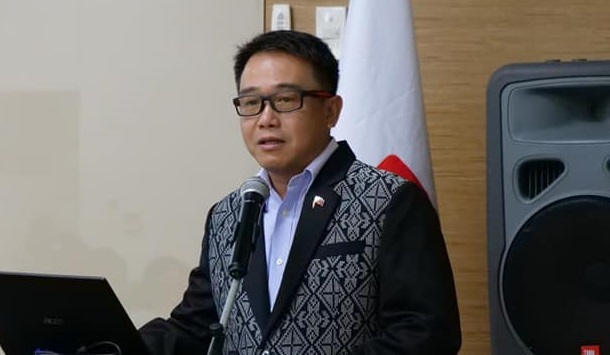The Intellectual Property Office of the Philippines (IPOPHL) believes that the modernization of intellectual property law is now “closer to fruition” as the lower House consolidated bills to amend the Intellectual Property Code of 1998.

In a statement Thursday, Feb. 25, IPOPHL director general Rowel Barba said amending the current legal intellectual property framework is “much needed” as international frameworks, standards, and best practices are evolving amid the rapid advances in technology.
“A modernized Intellectual Property Code will help the Philippines keep step with global trends, making the country more competitive and attractive to foreign investors,” Barba said.
The House Committee on Trade and Industry consolidated House Bill (HB) 8062, authored by representatives Christopher De Venecia and Sharon Garin; HB 1597 by deputy speaker Michael Romero; and HB 8620 by deputy speaker Weslie Gatchalian.
The Technical Working Group has agreed to use Gatchalian’s HB 8620 as its working draft for the new intellectual property law.
Moreover, the IPOPHL chief is pushing for 17 priority amendments, adding these changes will benefit stakeholders and the consuming public.
Under enforcement and adjudication, IPOPHL seeks steeper fines on infringers; removing the damage claim threshold; granting the office the power to take down websites with infringing material; recognizing its alternative dispute resolution mechanisms as official modes for dispute settlement; and institutionalizing its Intellectual Property Rights Enforcement Office.
IPOPHL also proposes amendments that will benefit inventors such as a parallel-protection system which inventors can register for patent grant and simultaneously file a utility model for the same invention.
Barba is also pushing for provisional patent protection which will protect inventions while the inventor is making refinements or still assessing the commercial viability of the invention before undergoing the formal patent application.
Included in its key amendments is the alignment of the definition of industrial design with the multilateral Trade-Related Aspects of Intellectual Property Rights Agreement and protection of partial designs or designs that make part of a certain product or article.
“Under the trademark law, new changes proposed are the protection of non-visual marks, such as sound marks, among others, and certification marks, which indicate that a product has met certain standards whether with respect to origin, material, mode of manufacture or performance,” IPOPHL said.
In protecting copyrights and related rights, the IPOPHL aims that the new law will adopt clear-cut rules on orphan works; recognizing extended collective licensing by which collective management organizations can extend the license they issue to works of non-members; expanding the limitations for copyright; and centralizing the registration and deposit of copyright works in IPOPHL to avoid confusion among stakeholders.
IPOPHL is also aiming one of its units to be transformed into Bureau of Innovation and Business Development that will promote the use of intellectual property documents and databases for innovation and creativity pursuits, as well as increase intellectual commercialization and technology transfer in the country.
IPOPHL also wants the institutionalization of Intellectual Property Academy, which will be the national center for intellectual property learning, skills training, and research. — Kris Crismundo (PNA)




